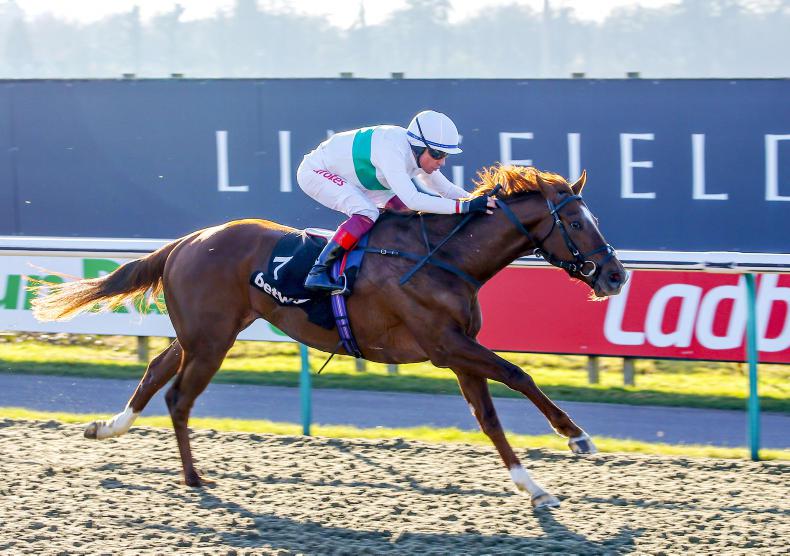A TRUCE has broken out between horsemen and the Arena Racing Company [ARC] in the war over proposed prize money cuts at ARC’s 18 racecourses across Britain.
Owners and trainers have boycotted several ARC fixtures in the past fortnight – only 15 horses contested six flat races at Lingfield on Wednesday. Just 15 horses contested six races at Lingfield on Wednesday, while there were 19 runners across six races at Southwell on Thursday. Only 31 were declared to run at Lingfield yesterday. Jump racing at Sedgefield was also affected.
The prize money cuts were made by ARC due to an expected drop in media rights income caused by betting shop closures. It is anticipated that thousands of shops will close this year following the reduction in the maximum stakes allowed on fixed odds betting terminals from £100 to £2. That change kicks in on April 1st.
Last Saturday ARC and the National Trainers Federation (NTF) appeared to reach an agreement when ARC offered to take money from better races and spread it among lower-grade races in order to ‘unlock’ Levy funding. However, this deal did not win approval from the NTF’s membership who are frustrated that there is not more transparency around the detail of how much ARC and other racecourses receive in media rights income from the betting industry.
Last night, the NTF chief executive Rupert Arnold told The Irish Field: “Talks are ongoing. There was an agreement last weekend that ARC would meet its prize money commitment for the duration of this month. There were further talks on Tuesday with representatives from across the industry and there was agreement on a plan to ensure prize money in 2019 is maintained at 2018 levels. More talks will take place in the week after Cheltenham and there is a sense of goodwill and cooperation across the industry.”
THE ENGLISH RACING BOYCOTT EXPLAINED
Q: What’s happened this week?
A: Several meetings run at racecourses owned by the Arena Racing Company (ARC) were boycotted by owners, trainers and jockeys due to prize money cuts.
Q: Why has prize money been cut?
A: ARC, which owns 18 tracks, made the cuts in anticipation of a drop in media rights revenues when the maximum stakes allowed on fixed odds betting terminals (FOBTs) in betting shops is reduced from £100 to £2 on April 1st. Thousands of betting shops in Britain are expected to close as a result.
Q: Won’t every British racecourse be forced to cut prize money?
A: Probably. Some other independent tracks have announced planned cuts. Even Newmarket has warned of cuts to come but horsemen have focused their wrath on ARC as they stage a lot of low-grade races where the prize money was already at low level and the cuts came without much warning.
Q: Are there any possible solutions on the table?
A: It’s not likely that the remaining betting shops can be asked to pay more for racing pictures. So either prize money will have to be taken from better races and put into the lesser races, or lots of low-grade fixtures are scrapped. For example, ARC also controls Doncaster and Chepstow – home of the St Leger and Welsh National.
Q: How much racing is there in Britain?
A: The fixture list has grown by 25% in the past 20 years. There are now over 1,500 meetings per annum. Lots of trainers and jockeys are making a modest living out of Britain’s low-grade all-weather racing. They would probably be driven out of the sport if many of these midweek fixtures were deleted.
Q: Will any of this affect Irish racing?
A: If fixtures or prize money is reduce then the demand for horses is bound to fall. Irish vendors sell an estimated 2,800 thoroughbreds each year at public sales to non-Irish buyers, worth €200 million. At least another €100 million worth of Irish bloodstock per year is sold privately. The vast majority of all these sales would be to the British market.
On the plus side, this crisis has highlighted the good prize money on offer in Ireland. However, any significant reduction in the number of British betting shops will ultimately affect the value of Irish racing’s media rights.
